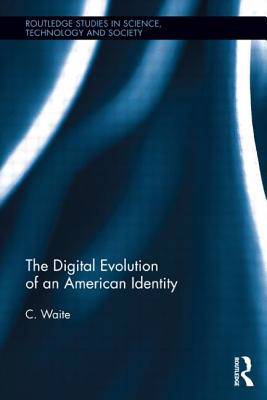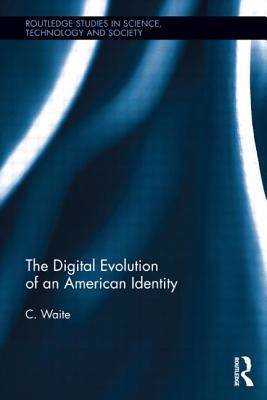
- Afhalen na 1 uur in een winkel met voorraad
- Gratis thuislevering in België vanaf € 30
- Ruim aanbod met 7 miljoen producten
- Afhalen na 1 uur in een winkel met voorraad
- Gratis thuislevering in België vanaf € 30
- Ruim aanbod met 7 miljoen producten
Omschrijving
The Digital Evolution of an American Identity details how the concept of American individualism is challenged by the digital revolution. As digital media alter our print-dominant culture, assumptions regarding the relationship of the individual to the larger community become increasingly problematic. Current arguments regarding freedom of speech and confusion about what is meant by privacy illustrate the nature of the challenge.
C. Waite defines individualism as the ways in which the American culture traditionally strives to balance the rights of the individual against the needs of the group. Americans struggle to understand what it means to be responsible both for one's self and for the welfare of others. They struggle with this not as an academic might, but in concrete and specific cases, often caught at cross-purposes with conflicting goods. This is a historic struggle, intrinsic to the very fabric of America's democratic society, as illustrated by its laws and customs.
The American democracy has supported a view of the person as an autonomous individual. Yet that concept of American individualism no longer adequately captures the role of the self in the social world. The digital environment challenges that autonomy by creating new avenues for speech and new forms of social networks. Though the transition from a print-based culture to the digital domain entails a global revolution, American culture will suffer the consequences of that revolution more profoundly than other cultures because the concept of American individualism is foundational to its democratic way of life.
Specificaties
Betrokkenen
- Auteur(s):
- Uitgeverij:
Inhoud
- Aantal bladzijden:
- 144
- Taal:
- Engels
- Reeks:
Eigenschappen
- Productcode (EAN):
- 9781138914681
- Verschijningsdatum:
- 21/05/2015
- Uitvoering:
- Paperback
- Formaat:
- Trade paperback (VS)
- Afmetingen:
- 152 mm x 229 mm
- Gewicht:
- 199 g

Alleen bij Standaard Boekhandel
Beoordelingen
We publiceren alleen reviews die voldoen aan de voorwaarden voor reviews. Bekijk onze voorwaarden voor reviews.











